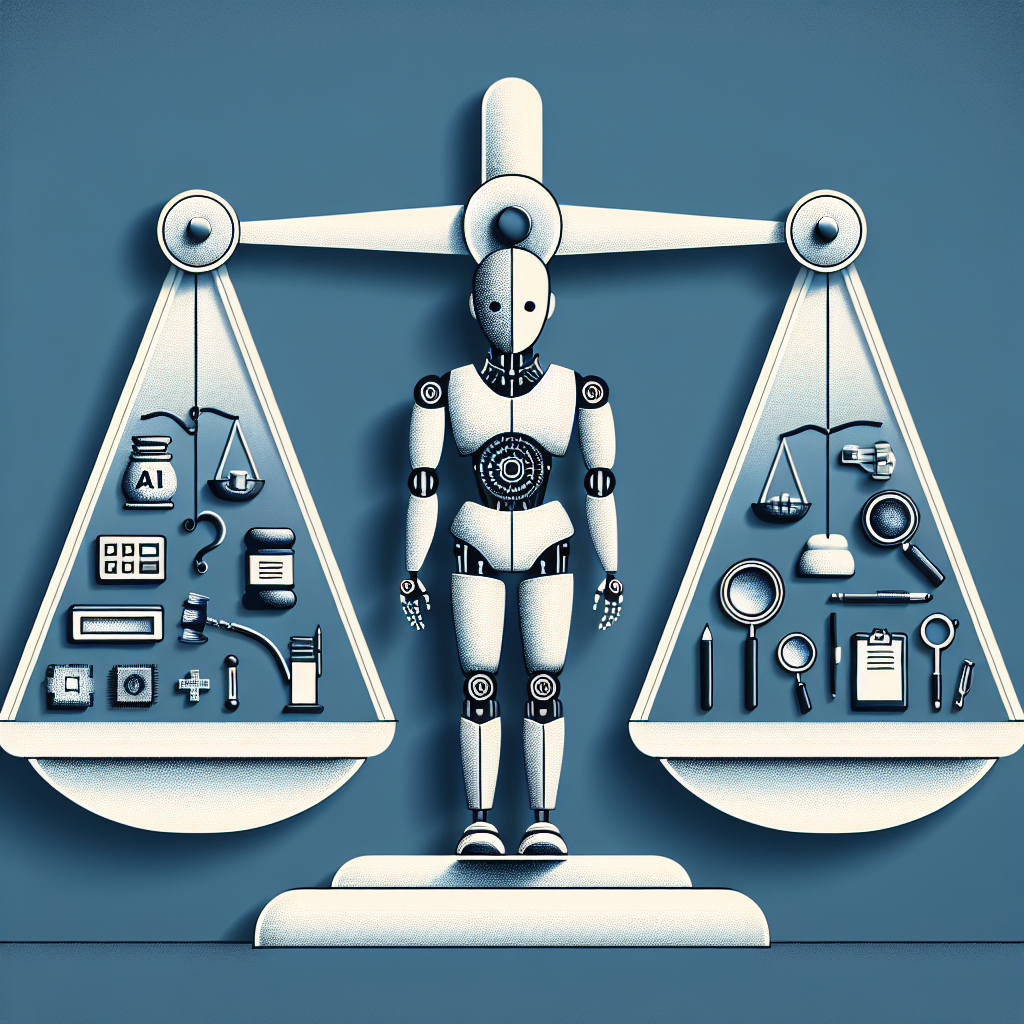Artificial Intelligence (AI) tools have become increasingly prevalent in our society, offering a wide range of benefits and conveniences in various industries. From self-driving cars to personalized recommendations on streaming platforms, AI has the potential to revolutionize the way we live and work. However, with this rapid advancement in technology comes a host of ethical implications that must be carefully considered and addressed.
One of the primary ethical concerns surrounding AI tools is the issue of bias. AI algorithms are often trained on large datasets that may contain biases inherent in the data. This can result in AI systems making discriminatory decisions, such as denying opportunities to certain groups based on race, gender, or other factors. In a society already plagued by systemic biases, the use of AI tools that perpetuate these biases can have far-reaching negative consequences.
Another ethical concern is the lack of transparency and accountability in AI decision-making. AI systems are often complex and opaque, making it difficult for users to understand how decisions are being made. This lack of transparency can lead to a loss of trust in AI systems and can make it challenging to hold AI developers accountable for the outcomes of their tools.
Privacy is also a significant ethical concern when it comes to AI tools. Many AI systems rely on vast amounts of personal data to function effectively, raising concerns about how this data is collected, stored, and used. There is a risk that personal information could be misused or compromised, leading to potential privacy violations and breaches.
Furthermore, the issue of job displacement is a concern when it comes to AI tools. As AI technology continues to advance, there is a fear that automation will lead to job losses in various industries, leaving many workers unemployed. This raises questions about how society should address the impact of AI on the workforce and how to ensure that workers are not left behind in the age of automation.
In addition to these ethical concerns, there are also broader societal implications to consider. For example, the use of AI tools in law enforcement raises questions about surveillance and civil liberties. The deployment of AI systems in healthcare raises concerns about patient privacy and the potential for medical errors. These are just a few examples of the complex ethical issues that arise when AI tools are integrated into different sectors of society.
To address these ethical concerns, it is essential for AI developers and policymakers to prioritize ethical considerations in the design and implementation of AI tools. This includes ensuring that AI systems are transparent, accountable, and free from bias. It also requires robust data protection measures to safeguard user privacy and prevent misuse of personal information. Additionally, efforts should be made to mitigate the impact of AI on the workforce and ensure that workers are provided with the necessary skills and support to adapt to a changing technological landscape.
In conclusion, while AI tools offer significant advantages and opportunities, it is crucial to recognize and address the ethical implications associated with their use. By prioritizing ethical considerations in the development and deployment of AI systems, we can ensure that AI technology is used responsibly and ethically to benefit society as a whole.
FAQs:
Q: What is bias in AI and how does it impact decision-making?
A: Bias in AI refers to the tendency of AI algorithms to make discriminatory decisions based on factors such as race, gender, or other characteristics. This can lead to unfair outcomes and perpetuate existing biases in society.
Q: How can AI developers address bias in AI systems?
A: AI developers can address bias in AI systems by ensuring that training data is diverse and representative of the population, implementing bias detection tools, and regularly auditing AI systems for biases.
Q: What steps can be taken to ensure transparency and accountability in AI decision-making?
A: To ensure transparency and accountability in AI decision-making, developers can document their decision-making processes, provide explanations for AI decisions, and establish mechanisms for users to challenge and appeal AI decisions.
Q: How can privacy concerns be addressed in the use of AI tools?
A: Privacy concerns in the use of AI tools can be addressed by implementing data protection measures, such as encryption and anonymization, obtaining user consent for data collection, and complying with data protection regulations.
Q: What are some potential solutions to mitigate the impact of AI on the workforce?
A: Some potential solutions to mitigate the impact of AI on the workforce include investing in skills training and reskilling programs, implementing policies to support displaced workers, and promoting job creation in emerging industries.

